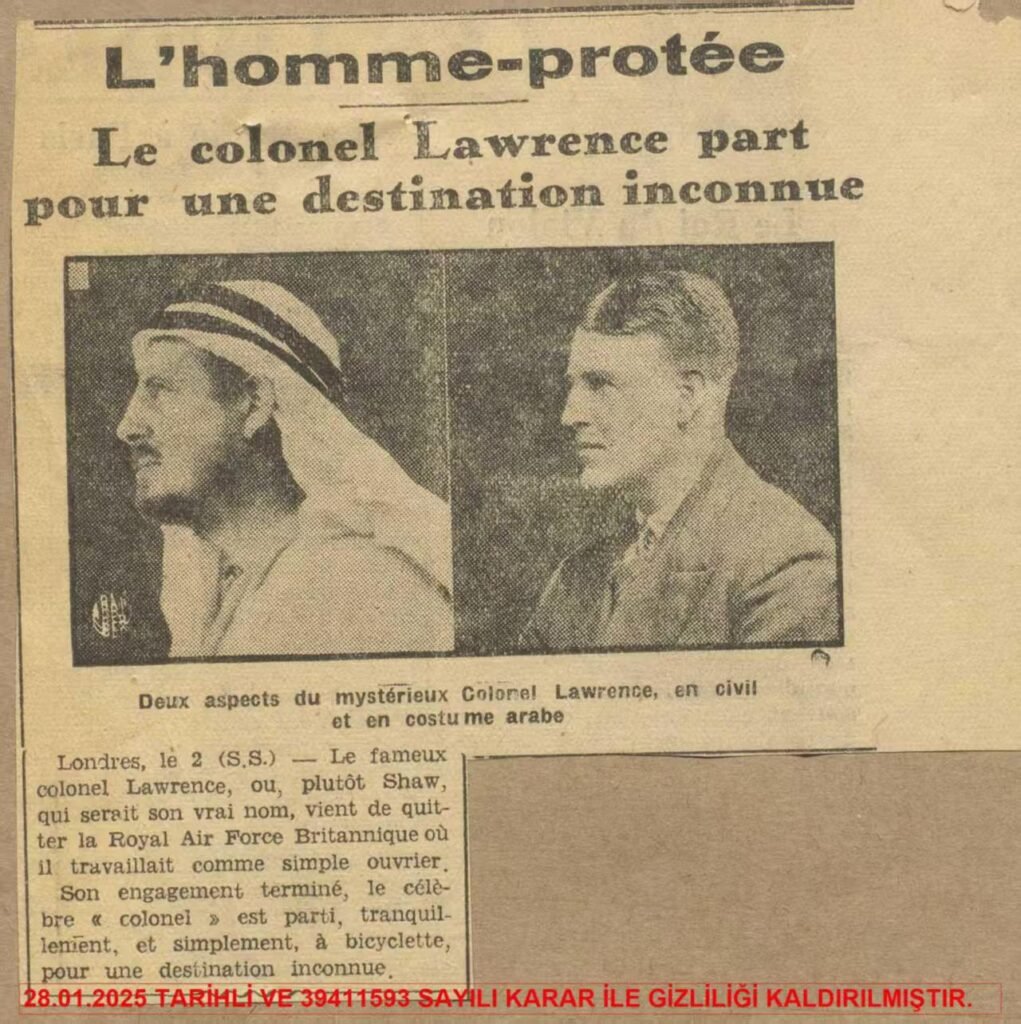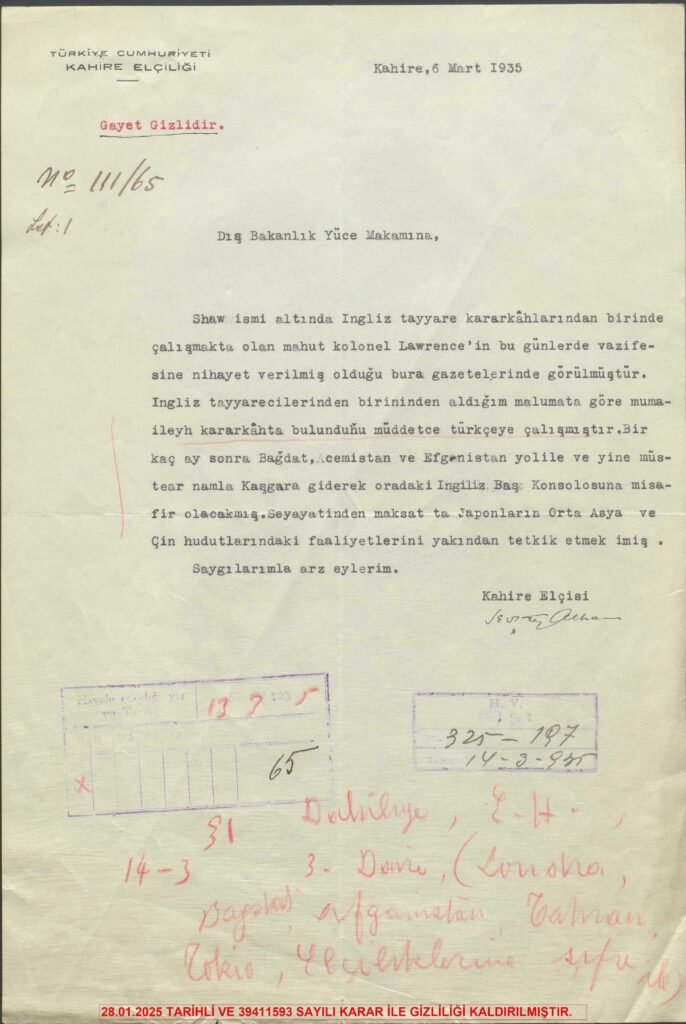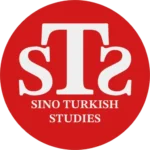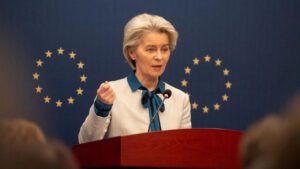One of the most controversial and influential figures in British intelligence history, Thomas Edward Lawrence—publicly known as “Lawrence of Arabia”—appears to have set out on a new journey extending to Kashgar, following the quiet conclusion of a recent mission in 1935. In a report marked “Top Secret” by the then-Ambassador to Cairo, Mehmet Ali Şevki Alhan, it is noted that Lawrence, under the alias Shaw, was serving at a British air force headquarters, and had recently completed his assignment there. The same document emphasizes that during his time at the headquarters, Lawrence showed a particular interest in learning Turkish and was preparing for a noteworthy journey.
The route of this journey is significant: Baghdad, through Persia (Iran) and Afghanistan, ultimately reaching Kashgar, today located in China’s Xinjiang Uyghur Autonomous Region. The final destination was the British Consulate General there, where Lawrence was to be received as a guest. One of the most striking elements of the document is the stated reason for the journey: to closely observe the increasing activities of the Japanese along the borders of Central Asia and China.
The 1930s were a period when the Japanese Empire intensified its influence across Asia, particularly consolidating its military and political presence in northern China and Manchuria. In this context, dispatching an intelligence officer like Lawrence—who not only had extensive field experience but was also familiar with regional cultures—reflects Britain’s perception of competition in the East, as well as the scope of covert diplomatic and intelligence operations being conducted against Japan in the region. Having spent many years working among Muslim communities, Lawrence spoke fluent Arabic—capable of inciting Arab tribes against the Ottoman Empire—and had begun studying Turkish. If not Lawrence, then who else could be sent?
For a British officer to be stationed in Kashgar, a city with deep cultural and strategic significance, likely had the objective of gathering intelligence on both local dynamics and the Sino-Japanese rivalry. At the time, Kashgar was known as a major trade center. Furthermore, the British consulate in Kashgar operated under the authority of the Government of British India, which itself was experiencing increasing difficulty due to the rise of nationalist independence movements led by Mahatma Gandhi.
Although we have limited information about this final journey of Lawrence, the fact that Central Asia would soon become a major arena of great power rivalry at the start of World War II suggests that the journey was far more than a simple diplomatic visit. In this regard, it becomes evident that Lawrence may have been one of the silent agents of British intelligence not only in Arabia but also in the depths of Asia.
However, Lawrence is officially reported to have died in a motorcycle accident in England on May 19, 1935. There is only a two-and-a-half-month gap between this official date of death and the report by Ambassador Mehmet Ali Bey. Perhaps Lawrence died before he could embark on his Central Asian mission as reported by our ambassador. Or perhaps the illusion of his death was created so he could continue his intelligence work under a new identity. As that is a topic for another article, we will not delve further here.
You may view the contents of the diplomatic report written by then-Ambassador to Cairo, Mehmet Ali Şevki Alhan, declassified as of January 2025, below.


Keywords :
- Lawrence of Arabia
- Thomas Edward Lawrence
- British intelligence history
- Kashgar
- Japanese expansion in Central Asia
- covert missions 1930s
- Xinjiang Uyghur region
- British Consulate in Kashgar
- Mehmet Ali Şevki Alhan
- declassified intelligence documents
- spy missions pre-WWII
- T.E. Lawrence final journey
Meta Description
Explore the declassified British intelligence report on Lawrence of Arabia’s secret journey to Kashgar in 1935 to monitor Japanese activities in Central Asia.
Abroad Africa AI Beijing Belt & Road BLCU BRICS China chinese CPC CSC Culture Economy education EU Guizhou Kültür Langauge movie Multipolarity Russia scholarship science Shanghai Sino Sino Turkish Sino Turkish Sino Turkish Sino Turkish Sino Turkish Studies Sino Turkish Studies Sino Turkish Studies Sino Turkish Studies space Syria Taiwan Tariff trump Turkiye Türkiye University USA Xinjiang ZJUT Çin





